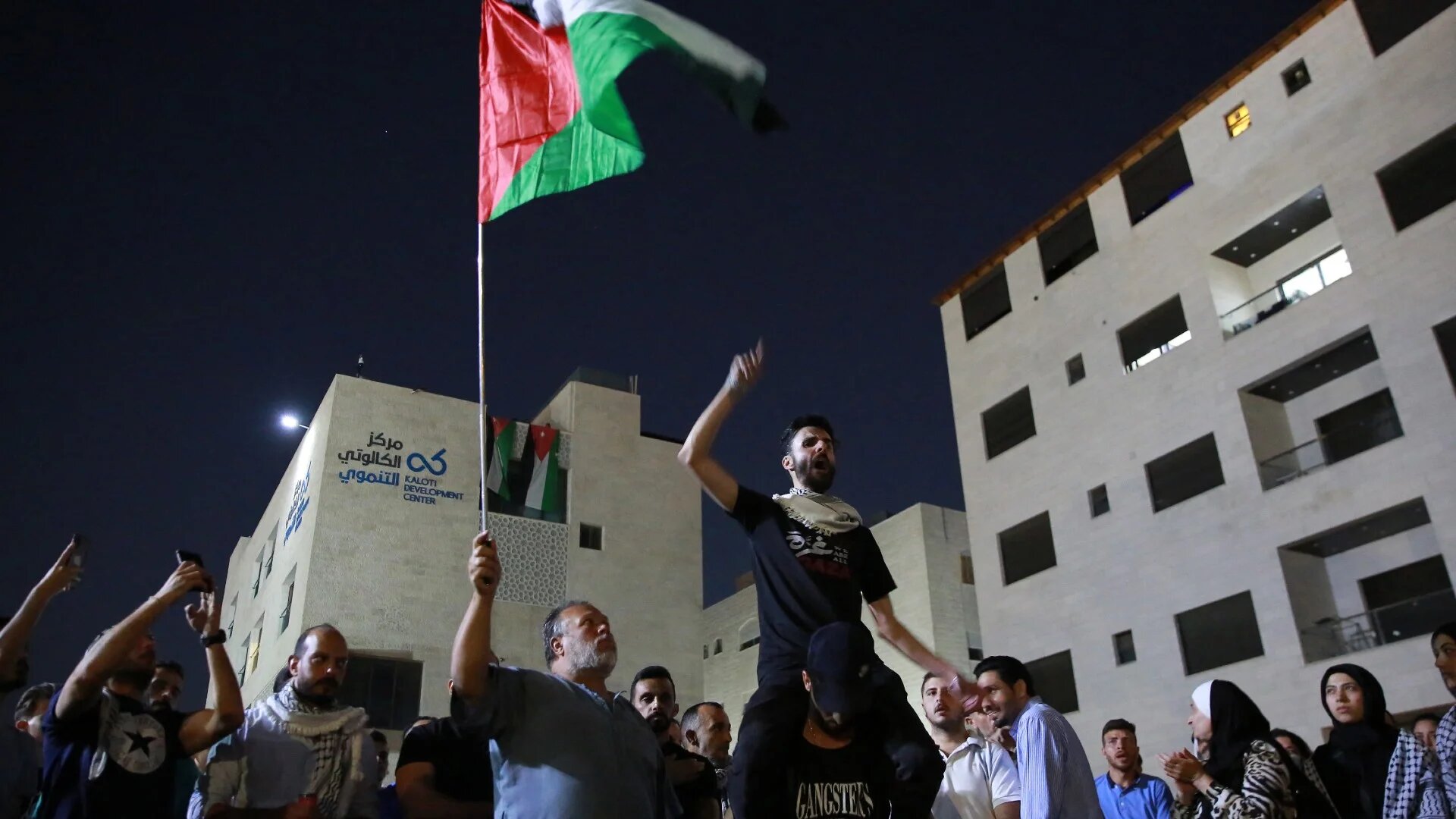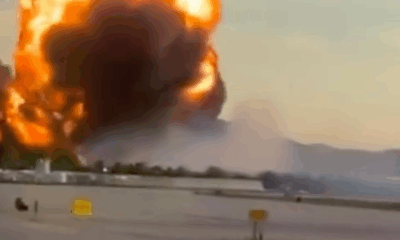Politics
Jordan Faces Internal Crisis Amid Crackdown on Activists

Authorities in Jordan are intensifying tensions within the country by implementing a crackdown on solidarity activists, leading to what sources describe as an “internal crisis.” This situation has escalated following a series of arrests targeting political opponents and party leaders amid growing instability in the region, particularly due to the deteriorating conditions for Palestinians in Gaza and the occupied West Bank.
On March 15, 2023, the Jordanian government arrested prominent social media activist Ayman Aballi shortly after he condemned the country’s “silence” regarding Israel’s policies in Gaza. This arrest is part of a broader campaign by Jordan’s intelligence services, known as the Mukhabarat, to suppress dissent. The crackdown has drawn criticism, especially following the death of Ahmed al-Ibrahim, a young man who died in police custody after allegedly suffering severe physical abuse during detention. His family reported that he had been taken to a hospital multiple times while being held at the Ramtha police station, located just 5 kilometers from the Syrian border. Ibrahim succumbed to his injuries shortly after being transferred for the final time, sparking protests in Ar-Ramtha where demonstrators blocked roads and demanded accountability.
The unrest has been compounded by the arrest of an MP from the Islamic Action Front party on the same day that Ibrahim died. The MP was detained for a Facebook post criticizing the government’s stance on the ongoing violence in Gaza. Security forces also detained Moaz al-Khawaldeh, a spokesman for the Muslim Brotherhood, though he was released the following day.
A political analyst, speaking on condition of anonymity due to fears of reprisal, noted, “The security forces are creating an internal crisis and causing an unprecedented wave of anger in the streets.” He emphasized that Jordan is facing significant external threats, including the potential collapse of the Syrian state and the risk of Palestinian displacement from the West Bank into Jordan, both of which could destabilize the region and alter the demographic landscape of the kingdom.
Jordan’s relationship with Syria has deteriorated recently due to renewed sectarian clashes that have exacerbated an already volatile situation. These clashes were reportedly ignited by a petty crime involving a Bedouin gang and have escalated into a series of kidnappings and killings. As Syrian security forces attempted to restore order, they faced ambushes from Druze fighters, leading to increasing violence and Israeli military actions in response to the turmoil.
The crackdown on Jordanian civil society has intensified criticism of the intelligence services, especially as many feel they are focusing on suppressing dissent while neglecting the more pressing threats posed by Israeli actions in the region. Reports from April indicated that the government had launched a widespread arrest campaign targeting activists, allegedly in response to pressure from the United States and the United Arab Emirates, with the aim of securing financial aid.
Earlier this month, tribesmen from Tafilah organized a sit-in outside the intelligence headquarters in Amman, demanding the release of Ahmed al-Zarqan, a former mayor and deputy general supervisor of the Muslim Brotherhood, who was arrested in late April. To date, Zarqan has not been charged or allowed any contact with a lawyer, raising concerns about the government’s treatment of political dissidents.
As the humanitarian crisis in Gaza worsens, Jordanian authorities are facing unprecedented scrutiny regarding their diplomatic relations with Israel. Since normalizing relations in 1994, the two nations have cooperated on various regional security issues, but public outrage over Israel’s actions in Gaza, which have resulted in over 58,000 Palestinian deaths, primarily civilians, has fueled protests across Jordan.
The complex historical relationship between Jordan and the West Bank has also added to the current tensions. Following the 1948 Arab-Israeli War, Jordan occupied the West Bank and East Jerusalem, later annexing these territories in 1950. Although Jordan granted citizenship to Palestinians living there, the annexation was always intended as a temporary measure until a resolution to the Palestinian issue could be achieved.
While the Jordanian government grapples with these challenges, the call for unity in the face of external threats remains critical, as the nation navigates its path through an increasingly turbulent regional landscape.
-

 Entertainment3 months ago
Entertainment3 months agoAnn Ming Reflects on ITV’s ‘I Fought the Law’ Drama
-

 Entertainment4 months ago
Entertainment4 months agoKate Garraway Sells £2 Million Home Amid Financial Struggles
-

 Health3 months ago
Health3 months agoKatie Price Faces New Health Concerns After Cancer Symptoms Resurface
-

 Entertainment3 months ago
Entertainment3 months agoCoronation Street’s Carl Webster Faces Trouble with New Affairs
-

 Entertainment3 months ago
Entertainment3 months agoWhere is Tinder Swindler Simon Leviev? Latest Updates Revealed
-

 World2 weeks ago
World2 weeks agoBailey Announces Heartbreaking Split from Rebecca After Reunion
-

 Entertainment4 months ago
Entertainment4 months agoMarkiplier Addresses AI Controversy During Livestream Response
-

 Entertainment2 weeks ago
Entertainment2 weeks agoCoronation Street Fans React as Todd Faces Heartbreaking Choice
-

 Science1 month ago
Science1 month agoBrian Cox Addresses Claims of Alien Probe in 3I/ATLAS Discovery
-

 Health4 months ago
Health4 months agoCarol Vorderman Reflects on Health Scare and Family Support
-

 Entertainment4 months ago
Entertainment4 months agoKim Cattrall Posts Cryptic Message After HBO’s Sequel Cancellation
-

 Entertainment3 months ago
Entertainment3 months agoOlivia Attwood Opens Up About Fallout with Former Best Friend





















